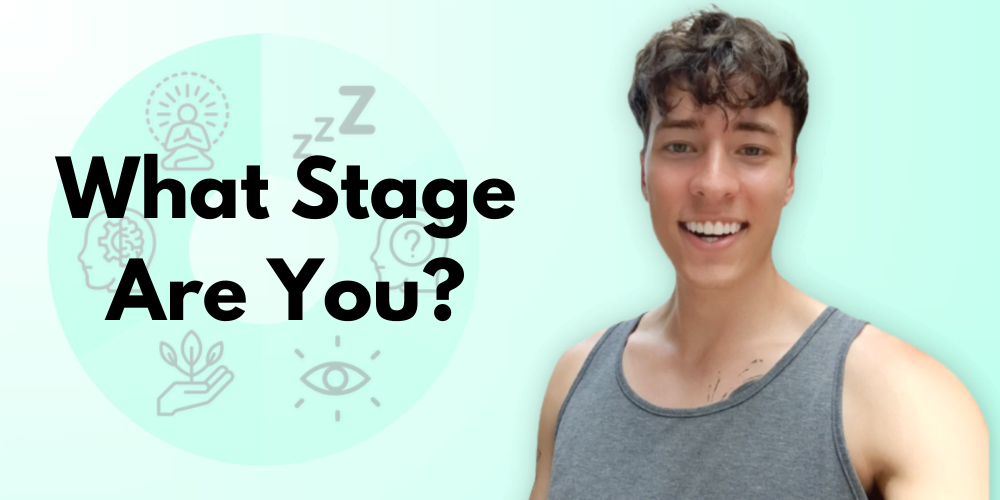Fasting For Spiritual Awakening (How To Fast For Breakthroughs)
If you’re on the journey to awakening you’re likely trying all kinds of techniques and practices. One such practice that can aid in a consciousness breakthrough is fasting. Are wondering if fasting is worth it for spiritual awakening? And if so, how do you do it and for how long? Let’s find out together in today’s post. Key Takeaways Fasting as a spiritual practice The practice of fasting can be found in just about every world religion and spiritual tradition out there. Why? Because fasting really does have spiritual benefits. Christians often fast and pray during specific seasons of the year. Muslims fast during Ramadan. Other traditions fast simply for it’s cognitive and consciousness enhancing effects. Humans in general have been fasting both intentionally and unintentionally out of necessity for tens of thousands of years. Spiritual Benefits of Fasting There are several reasons to fast for spiritual growth and awakening. Here are some spiritual benefits of fasting: Heightened awareness The greatest benefit of fasting is it’s consciousness enhancing effect. Fasting creates conditions in the body such as ketosis which enhance focus and hone your awareness. Fasting can create a mindset of clear consciousness that is conducive to having spiritual insights. Having clear awareness is the foundation of awakening. Cleansing Many spiritual traditions fast for the purpose of cleansing. The Hindu tradition believes that fasting can cleanse the mind, body, and spirit. There is real scientific evidence to back. Research shows that fasting can: This can have a compounding positive effect on your mind and body. Having an optimized mind and body will make the experience of awakening easier to achieve. Practicing discipline and focus Some spiritual traditions simply fast as a practice of discipline. Developing discipline through fasting can give you an edge during meditation and other spiritual practices that aid in awakening. How to Fast for Spiritual Breakthroughs Fasting for spiritual insights is relatively simply, but there are a few things you should know before starting your fast. Set Your intention The first step in a spiritual fast is to set your intention. Setting an intention may not seem that important, but it can really make a big difference. State that the purpose of this fast is to help you break into greater consciousness. This will give a sense of focus and purpose to your fast. Don’t go into a fast without a proper reason, otherwise you may not receive the outcome you hope for. Where focus goes, energy flows. Choose what type of fast There are many different types of fasts you can choose to try including: These are the main types of fasting. One isn’t better than the other, however I’d recommend an intermittent fast for your first attempt. Determine how long you will fast Before you begin should determine how long your fast will go for. There’s no right or wrong answer here and you should always listen to your body if you feel the duration is getting too long to handle. However, to enter into a state of ketosis, which creates many of the consciousness enhancing benefits you’re likely looking for, you should fast for at least 12 hours. Meditation and fasting If you’re attempting to fast for the purpose of having an awakening meditation can be very effective. Meditating while fasting will compound the consciousness expanding effects of both. This can be a particularly potent combination for spiritual awakening and existential insights. Try to set aside 20 to 30 minutes to meditate during the peak of your fast for the best results. Breaking your fast If you’re breaking a fast of less than 36 hours then simply eat a regular sized meal that you would normally eat at that time of day. If you’re breaking a fast of more than 36 hours then eat a high protein snack of roughly 200 calories first around an hour before your true sized meal. This will allow your gut to reengage and mitigate unpleasant refeeding syndrome symptoms. Fasting Challenges Fasting, especially your first few time, can be more challenging than you anticipated. Let’s talk about how to overcome some of these common challenges. Weight loss Some people find that fasting can cause unexpected weight loss. For some this is a pleasant surprise, while others aren’t as happy about this aspect of their spiritual practice. If this is a concern of yours simply fast for shorter periods of time and eat plenty of calories before and after your fast. see also how spiritual awakening can cause weight loss. Feeling weak and/or dizzy A common concern during a fast for spiritual growth is weakness and dizziness. This happens quite commonly for first time fasters. If this happens to you make sure you’re drinking plenty of water and not being over active. Take it easy on fast days. The emphasis of this type of fast should be on slowing down and going inward, so limit your physical activity on fast days. If you ever feel to weak or uncomfortable simply break your fast with the recommended guidelines above. Hunger and cravings Many people at the beginning of their fast will feel very hungry and experience cravings for food. This is very normal and should be expected. Eventually later on in a fast these cravings will tone down. While your hunger and cravings are present simply observe it and mindfully tap into the unpleasant experience. Use this as a focus point for your meditation until it goes away. Tips on fasting for awakening Here are 2 extra things to keep in mind while fasting for awakening. Stay hydrated Make sure you’re not getting dehydrated during your fast. Drink plenty of water throughout your spiritual fast. Listen to your body Finally, make sure you’re listening to your body. If you ever become too weak or dizzy it may be time to break the fast. Overdoing it for the sake of a spiritual breakthrough is not worth an accidental trip to the ER. Stay in touch with your body and take it
Fasting For Spiritual Awakening (How To Fast For Breakthroughs) Read More »



